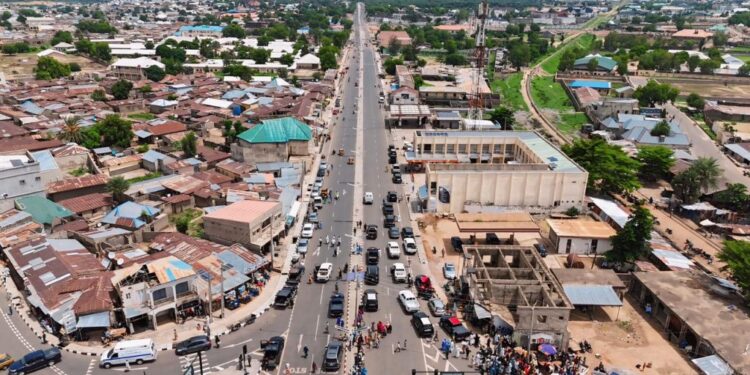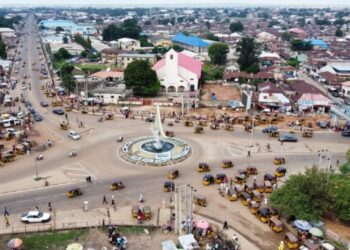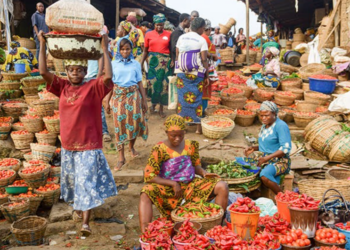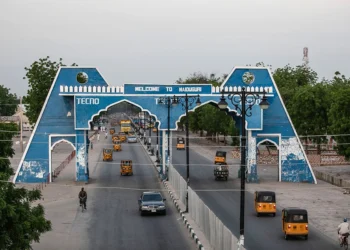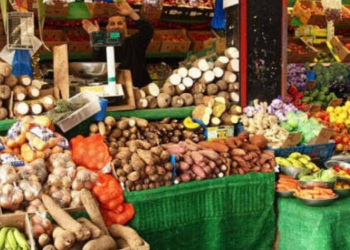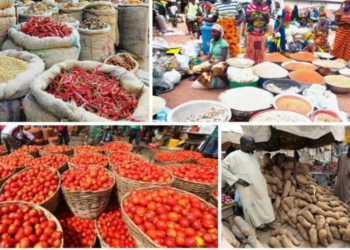Nigeria’s cost of living varied widely across states in August 2025, with some regions offering significantly lower expenses for households and businesses.
The headline inflation for the nation slowed to 20.12% from 21.88% in July 2025.
According to the latest Consumer Price Index (CPI) data released by the National Bureau of Statistics (NBS), several states maintained a slower pace of price increases compared to the national average, making them more affordable destinations.
Persistent inflationary pressures have weighed on Nigerian consumers for much of 2025, particularly in urban centers where food, housing, and transportation costs remain elevated. Yet, pockets of relative stability continue to exist—mainly in states with strong agricultural output, lower population density, or less reliance on imported goods.
Food inflation remains the key cost driver for many Nigerian families, accounting for a large portion of household spending. States that manage to moderate food prices effectively tend to feel more affordable on the ground—even when headline inflation seems high.
The affordability ranking is based on headline inflation rates for August, which measure the year-on-year change in prices across essential goods and services. States with lower inflation rates tend to experience less upward pressure on household budgets, making them attractive for cost-conscious residents and potential investors.
Below are the 10 most affordable states in Nigeria for August 2025.
Yobe State, which ranked as Nigeria’s most affordable state in July 2025, fell to the 10th position in August following a sharp rise in headline inflation.
According to the latest NBS data, the state recorded a 6.7 percentage-point jump in headline inflation, driven largely by higher costs in non-food categories such as transport, housing, and utilities. In contrast, food inflation dropped dramatically by 11.5 points—from 15.1% in July to just 3.6% in August.
Local market reports attribute the decline in food prices to the August grain harvest in the Damaturu and Gashua belts, which boosted the availability of millet and sorghum. This supply surge helped ease pressure on household grocery spending, even as other expenses climbed.
Meanwhile, the Yobe State Government has intensified its agricultural and environmental initiatives. In August, Governor Mai Mala Buni inaugurated a committee on tree planting and environmental hazards in Damaturu, as part of a broader campaign to combat desertification and restore the ecosystem. He revealed that no fewer than 3,000 seedlings would be allocated to each local government area, alongside seedlings for household planting—targeting two million seedlings in the campaign’s first phase.
To further strengthen the agricultural sector, the state also distributed free Massey Ferguson 375 tractors to farmers and associations under its Agriculture Empowerment Programme. Beneficiaries included the Yobe chapter of the All Farmers Association of Nigeria (AFAN), AMFAZAT Farms, FA’IZA Farms, and RAISA Farms.
Additionally, newly introduced subsidized transport routes for farm produce improved market supply in urban areas. However, rising fuel prices and ongoing repairs on major road corridors likely contributed to higher transport and housing utility costs, which pushed up headline inflation.
Despite the shift in rankings, Yobe remains one of the more affordable states for food items, providing households with some relief in the face of broader cost-of-living pressures.

